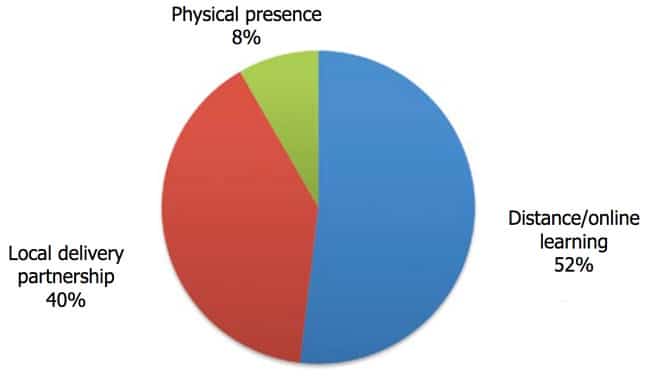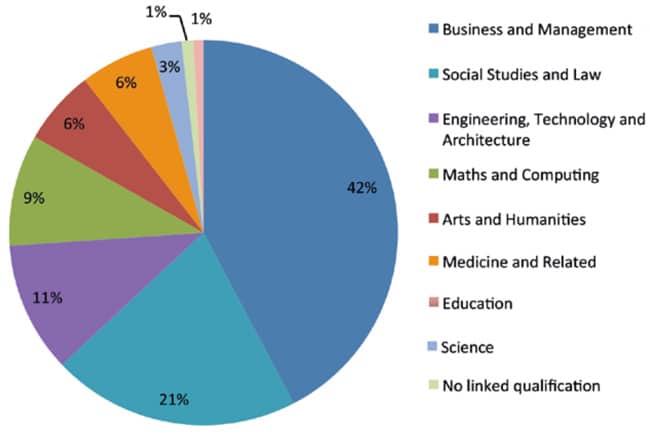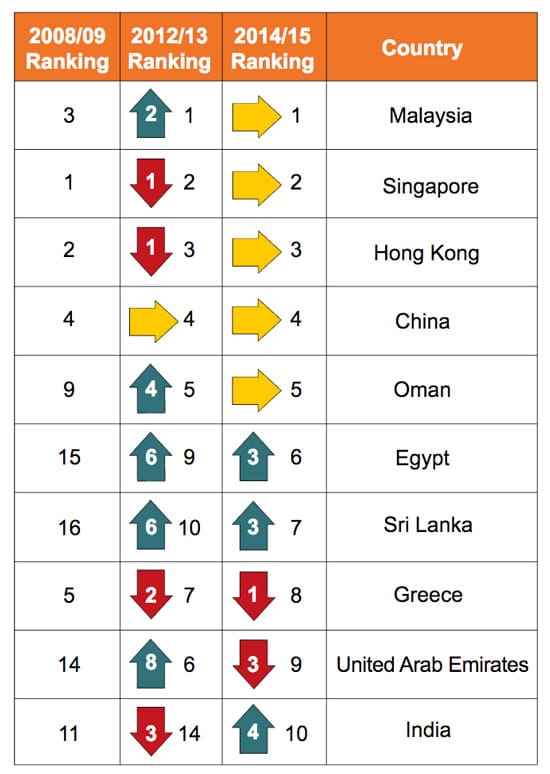UK providers increasing focus on transnational education
New data from the UK provides a stark contrast between onshore and offshore enrolment trends, and indicates a growing emphasis on transnational education (TNE) among Britain’s higher education institutions. The Higher Education Statistics Agency (HESA) reports that international enrolment in the UK was essentially flat between 2013/14 and 2014/15. Enrolment from other European Union countries fell slightly year-over-year while non-EU student numbers were up marginally (.7%). Overall, foreign enrolment in British higher education was virtually unchanged over the two years, from a total of 435,495 in 2013/14 to 436,880 in 2014/15 (a .3% increase). With the exception of the US (up by 1% year-over-year), all top ten non-EU markets for British higher education fell off last year. Reflecting a pattern of the previous couple of years, Indian enrolment continues to erode most notably with a 10% decline between 2013/14 and 2014/15. This marks the third consecutive year of soft growth or no growth in international enrolment in the UK. The pattern stands in sharp contrast to other major destinations - such as the US, Canada, Australia, China, and Germany - that have all recorded significant enrolment gains over the same period. This declining performance is partly a function of shifting patterns of demand, and relative currency values in particular, in a number of established and emerging sending markets around the world. But it also has a lot to do with the UK’s more restrictive visa policies for international students in recent years.
Growth in TNE
Perhaps it is not surprising then that British providers are shifting more of their focus to offshore delivery. A newly released study from HEGlobal, a joint initiative between the UK HE International Unit and the British Council, finds that the number of international students enrolled in British TNE programmes increased by 13% between 2013/14 and 2014/15. Moreover, four in five higher education institutions in the UK plan to further expand their TNE provision over the next three years.
The Scale and Scope of UK Higher Education Transnational Education draws on HESA data as well as a further detailed survey of all UK higher education providers delivering TNE programmes in 2014/15.
"TNE activity involves higher education institutions delivering their educational services in another country rather than the students travelling to the foreign university to study," summarises the report. "It can include but is not limited to branch campuses, distance learning, online provision, joint and dual degree programmes, flying in faculty for short courses, or [blended learning models]."
The HEGlobal study reframes this broad definition into three distinct categories of TNE: local delivery partnership, physical presence (referring mainly to international branch campuses, or IBCs), and distance or online provision. The following chart shows the breakdown of British TNE enrolment in the top five offshore markets across these three categories for 2014/15.



Most Recent
-
ICEF Podcast: Together for transparency – Building global standards for ethical international student recruitment Read More
-
New analysis sounds a note of caution for UK immigration reforms Read More
-
The number of students in higher education abroad has more than tripled since the turn of the century Read More
















